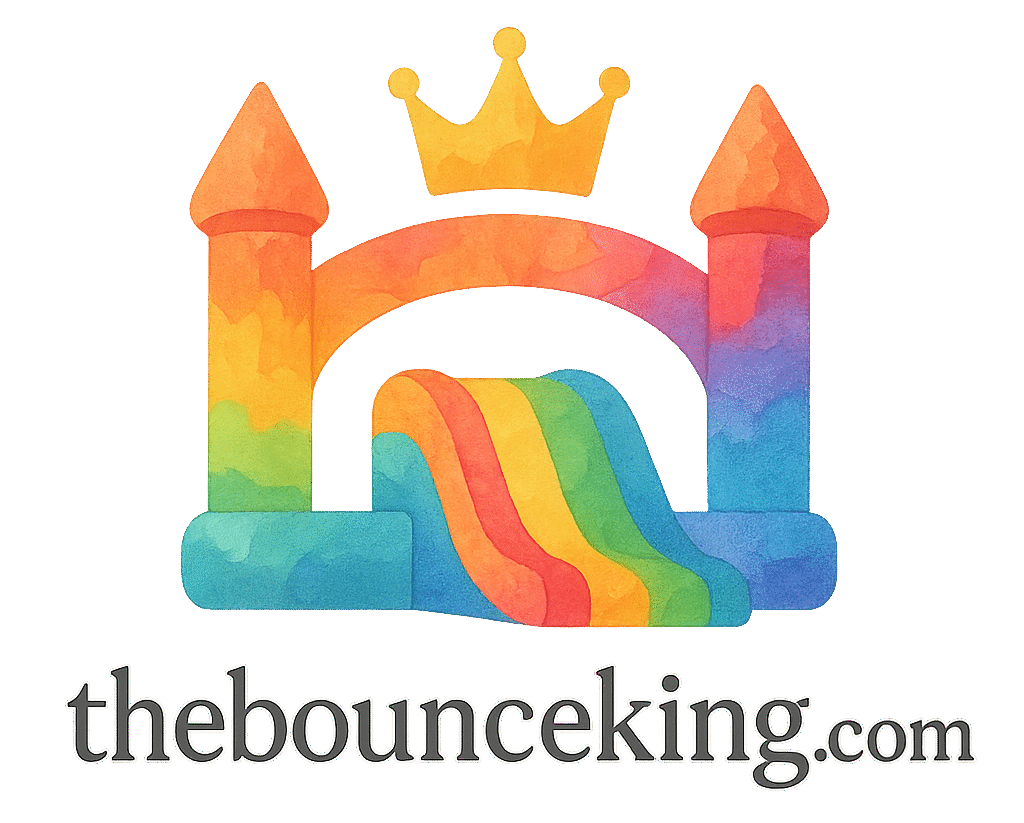Introduction
Starting and managing a bounce rental business is not only a fun and rewarding venture but also a responsibility that comes with legal obligations. Understanding and adhering to legal requirements is crucial for running a safe and successful business. Failing to comply can result in penalties, lawsuits, or even business closure. This article will outline the five key legal requirements for bounce rental businesses, providing you with the knowledge needed to keep your operations smooth and compliant with regulations.
H1: Overview of the Bounce Rental Business
Before diving into the legalities, let’s first discuss what a bounce rental business involves. A bounce rental business offers inflatable bounce houses, slides, and similar entertainment equipment for events like birthdays, parties, and festivals. The industry has grown rapidly in recent years, as more people seek fun and engaging experiences for children.
The popularity of bounce houses means there’s a significant market for such services. However, as with any growing business, it’s essential to stay informed about the legal requirements and responsibilities involved. Let’s explore the first of these.
H2: Legal Requirement 1 – Business Licensing
H3: What is Business Licensing?
Business licensing is a legal requirement that ensures your business is officially recognized and authorized to operate. It is essential for every business, including bounce rental businesses, to obtain the necessary licenses from local, state, and federal authorities. Operating without the required licenses can lead to penalties or closure.
H3: Types of Licenses Needed for Bounce Rental Business
Depending on your location, several licenses may be required to run a bounce rental business. These include:
- Business Operation License: A general license issued by your city or county to legally operate within the jurisdiction.
- Sales Tax Permit: If you sell or rent equipment, you’ll need this permit to collect and remit sales tax to the state.
- Special Event Permit: If you’re renting your equipment for public events, fairs, or festivals, this permit may be required.
For more details on running a licensed bounce rental business, check out Bounce Business Rentals.
H4: State vs. Local Licensing
It’s important to understand that business licenses are often issued at both the state and local levels. You’ll need to check the requirements in both areas to ensure full compliance. Some states may have broader regulations, while local municipalities might have additional stipulations, such as safety standards for inflatable rentals.
H2: Legal Requirement 2 – Insurance Coverage
H3: Why Insurance is Crucial for Your Bounce Rental Business
Insurance protects your business from financial loss due to accidents, damages, or injuries. Given that bounce houses are typically used by children and at large public events, having the right insurance coverage is crucial. Without insurance, a single incident could lead to significant financial harm.
H3: Types of Insurance You Should Consider
To properly protect your business, consider the following types of insurance:
- Liability Insurance: This protects your business if someone is injured while using your inflatable equipment. This is critical in a business where children are involved.
- Property Insurance: This covers your inflatable bounce houses and other equipment in case of theft, vandalism, or damage during transport or setup.
- Workers’ Compensation: If you have employees, this type of insurance will cover their medical expenses if they’re injured while working for your business.
For more information on how to ensure the safety of your bounce rental business, check out Bounce Safety Tips.
H4: Liability Insurance
Liability insurance is especially important in the bounce rental business due to the nature of the equipment and the potential risks involved. Accidents can happen, even when all safety measures are followed. Liability insurance covers medical expenses, legal fees, and other costs if someone is injured while using your inflatables.

H2: Legal Requirement 3 – Safety Regulations
H3: Safety Standards for Bounce Houses
Ensuring that your inflatable equipment adheres to national and state safety standards is a legal requirement for bounce rental businesses. These regulations are designed to protect your customers and keep your business compliant.
H3: Compliance with National and State Safety Regulations
In the U.S., bounce houses are regulated by organizations such as the ASTM (American Society for Testing and Materials). These regulations outline the requirements for structural integrity, design, and operation of inflatables. Each state may also have its own specific safety guidelines that you need to comply with.
For tips on indoor bounce safety, you can check out Indoor Bounce Fun.
H4: Ensuring Safe Equipment and Installation
It’s your responsibility as a business owner to regularly inspect and maintain your equipment. This includes ensuring that the inflatables are properly anchored, free of defects, and regularly cleaned. Additionally, you should train your staff to set up and supervise the equipment in a safe manner to avoid accidents.
H2: Legal Requirement 4 – Contracts and Waivers
H3: Importance of Written Contracts in the Bounce Rental Business
Having a solid, written contract is essential for setting clear expectations between you and your customers. A contract protects your business by outlining the terms and conditions of the rental agreement and ensuring that both parties are aware of their responsibilities.
H3: Creating a Waiver for Liability and Safety
A waiver is a key legal document that your customers must sign before using your bounce houses. It releases you from certain liabilities, ensuring that the customer understands the risks involved in using the equipment.
For guidance on creating contracts and waivers, you can learn more through Bounce Themes.
H4: What Should Be Included in Your Rental Agreement?
A comprehensive rental agreement should include:
- The rental dates and times
- The responsibilities of the customer
- Payment terms and cancellation policies
- Safety guidelines and instructions
- Liability waiver to protect your business from lawsuits
H2: Legal Requirement 5 – Taxes and Financial Regulations
H3: Sales Tax for Bounce Rentals
As a bounce rental business, you are required to collect sales tax on your rental services in many states. It’s essential to register for a sales tax permit and ensure that you are collecting and remitting the tax correctly.
H3: Keeping Accurate Financial Records
To stay compliant with tax regulations, it’s important to maintain accurate financial records. This includes tracking your income and expenses, which will make filing taxes much easier. Regularly update your financial records to ensure accuracy.
H4: Tax Reporting and Filing
Ensure that you file your business taxes on time and correctly report your income. This will help you avoid any penalties or issues with the IRS. It may be beneficial to consult a tax professional who can guide you through the reporting process.
For more information on the financial side of your bounce rental business, explore Business Ideas.
H1: How to Stay Compliant with These Legal Requirements
Compliance is not a one-time task. It’s important to regularly review and update your business practices to remain compliant with new laws and regulations. Working with legal professionals and accountants is advisable to ensure you are following all relevant rules and guidelines.
Conclusion
In conclusion, starting and running a bounce rental business involves more than just owning inflatable equipment. You must ensure that your business complies with legal requirements such as licensing, insurance, safety regulations, contracts, and taxes. By following these five key legal requirements, you will protect your business, your clients, and your bottom line.
FAQs
- What licenses are required for a bounce rental business? You’ll need a business operation license, sales tax permit, and possibly special event permits, depending on your location.
- Do I need insurance for a bounce house business? Yes, liability and property insurance are necessary to protect your business from potential claims or damages.
- How can I ensure the safety of my inflatable rentals? Regularly inspect and maintain your inflatables, follow national safety standards, and train staff on safe setup and usage.
- What should be included in a bounce rental contract? A contract should detail rental terms, safety instructions, customer responsibilities, and payment terms.
- Do I need to charge taxes for bounce rentals? Yes, in most states, you are required to collect sales tax on rental services.
- How can I avoid legal trouble in the bounce rental business? Ensure proper licensing, insurance, safety standards, and clear contracts are in place.
- Where can I find more information on the bounce rental business industry? Visit Bounce Rentals for industry insights and resources.

